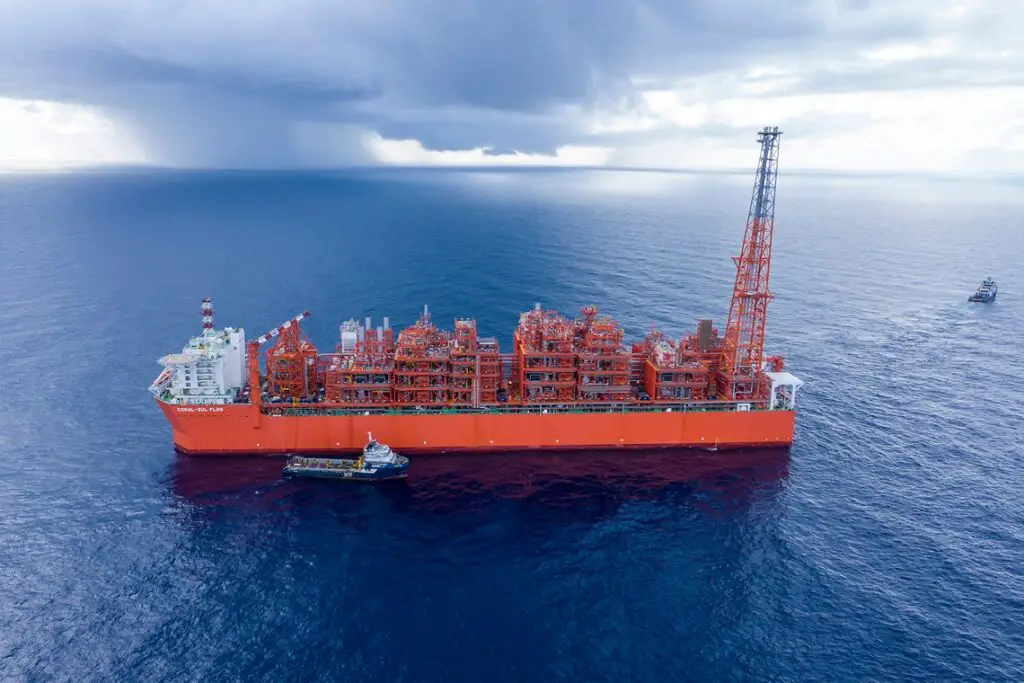After a substantial decline in 2021, Mozambique’s GDP is expected to recover to 4.5% at the closing of 2022 and potentially expand to 5.1% in 2023. The impact of the Covid-19 pandemic, extreme climactic events and jihadist insurgency in the north of Mozambique were the driving factors of the contraction in the economy.
As a consequence of violence in the northern gas-rich province of Cabo Delgado, French energy firm TotalEnergies, declared force majeure at its Area 1 site in May 2021, after an attack on a nearby town. Several mines and other businesses in the province have also suspended operations following recent attacks.
Over the course of 2022, the prospects of the TotalEnergies improved, owing to territorial gains made near the site. The decrease in insurgency and piracy has been seen as a major setback for rebels. The progress on security is thankful to a combined military intervention from defense forces from Mozambique, Southern Africa Development Community (SADC) and Rwanda.
As result of the ongoing recovery, real GDP growth is expected to rise in 2023, as the offshore Coral gas field in the north Cabo Delgado province reaches capacity. This combined with the increase in coal and aluminum mining, as well as the resumption of construction on the Area 1 gas project, seeks to demonstrate a greater national output for 2023.
Nevertheless, with the rising US interest rates and strong US dollar, inflationary pressure will remain. As of October 2022, according to the Mozambique Ministry of Finance, inflation is expected to increase to 11.83%.
Official data indicate that net foreign reserves reached $2.8 billion, enough to afford imports and foreign services over the course of the first 3 to 4 months in 2023.
Also Read: Mozambique’s coal price competitiveness attracts Indian buyers
Nevertheless, it is estimated that national public debt will decrease from an estimated 106.6% of GDP at end-2022 to 77.3% of GDP at end-2027, primarily due to national exports of energy products.
Meanwhile, as authorities are struggling to contain the debt from spiralling, hope seems to stand high, as projected 2023 exports from LNG output via the Coral South Terminal will turn national revenues into a positive.
In May the IMF approved a three-year, US$456m extended credit facility (with an initial disbursement of US$91m), aimed at improving fiscal sustainability.
The credit facility will signal the resumption of financial assistance from the institution after a suspension sparked by the unveiling of the so-called “hidden debt”.
The move is seen to be a massive boost to international partners to fully resume financial assistance to Mozambique, as many donors and creditors have been weary of providing loans to the country.
The Energy Economy of Mozambique
Mozambique’s economy stands with about 45% comprised of agricultural development and about 25% from industrial development. Though the energy arena only constitutes a fraction of the country’s economy, only one small gas field has begun production.
Coral South’s natural gas (LNG) production, which began in October 2022, will reach full capacity of 3.4 million metric tonnes per year in 2023, further bolstering the optimistic forecast.
As revenue increases and spending decreases, the budget deficit is projected to shrink from an anticipated 6.4% GDP in 2022 to 2.7% in 2027. Revenue will rise in 2023 when LNG output from the Coral South floating terminal achieves full capacity, resulting in higher export receipts.
With the offshore Coral gas field operating at full capacity, expanded coal and aluminium mining, and the restart of building on the Area 1 gas project, real GDP growth is expected to accelerate in 2023. (output will begin in 2027).
The final investment decision for ExxonMobil’s (US) Area 4 liquefied natural gas (LNG) project is anticipated in 2024, which will be a beneficial development for years to come.
Although there is an external and jihadist component to the conflict, several specialists with field works have highlighted the importance of social and economic imbalances in driving the chaos in the region.
Also Read: Mozambique makes first export of Liquefied Natural Gas
The violence in the immensely gas-rich province of Cabo Delgado provides a topical setting for discussing this topic.
The ruling Frelimo party’s hold on power appears to be secure, given the paltry strength of the opposition.
Given the government’s firm grip on state institutions like the military, the current political status quo is safe for the incumbents.
It remains to be seen whether the incumbent Head of State and Frelimo’s leader will seek a constitutional amendment to accommodate a hypothetical ambition to run for a third term in office, but either way, the next electoral cycle will be actively monitored by the domestic and foreign communities.
By Rafael Sarmento Bié
Rafael is the Press Secretary of the Mozambique Ministry of Economy and Finance.
